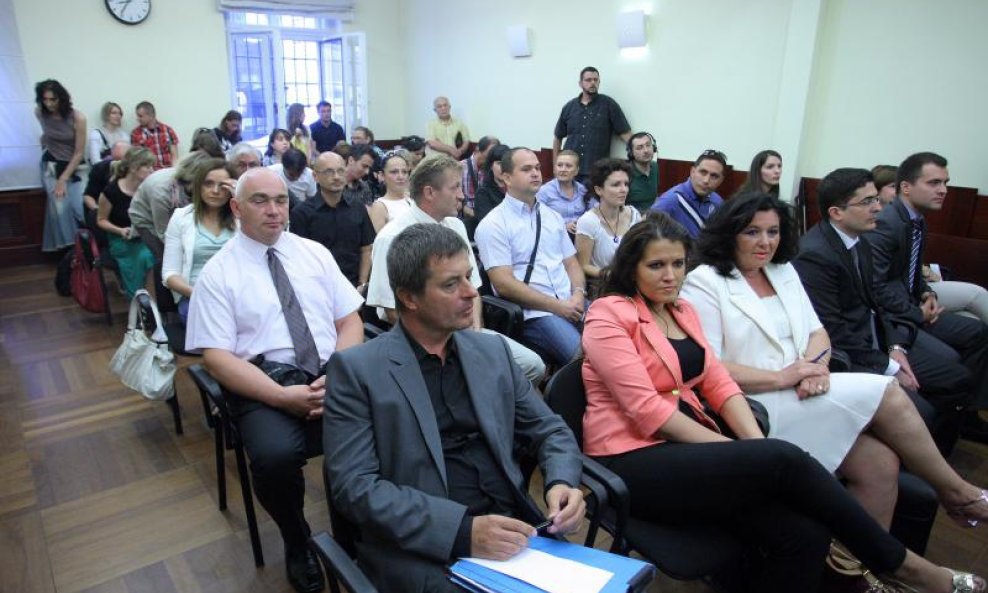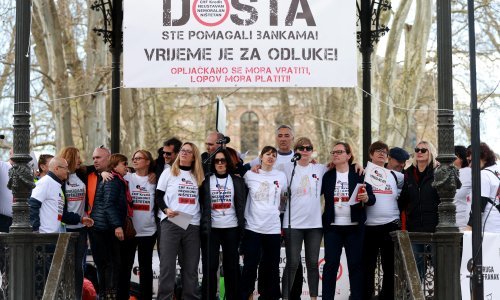Croatian Finance Minister Slavko Linic has said that Thursday's court ruling in favour of the plaintiff against eight commercial banks over foreign currency clauses in loan contracts is a matter of banks and that they should deal with it.
"That is now a matter for the banks to deal with the court ruling," Linic said on Thursday morning after the Zagreb County Court handed down the judgement upholding the plaintiff's claim.
Asked what was going on with his proposal on consumer borrowing, the minister said he expected the draft bill to be on the government's agenda next week.
The judgement was handed down this morning by Judge Radovan Dobronic exactly one year after the first preparatory hearing in this case was held.
The class action was lodged by the Consumer Protection Association "Potrosac" against Zagrebacka Banka, Privredna Banka, Erste Bank, Raiffesenbank, Hypo Alpe-Adria-Bank, OTP, Splitska Banka, and Sberbank.
Explaining the ruling, the judge said today that the banks had violated consumers' rights when they failed to fully inform them about all parameters necessary to decide on taking loans.
The judge also finds a unilateral decision to increase interest rates as an act of violating collective interests and ordered the banks to convert loans' capital sum into the kuna according to its exchange rate on the day of the conclusion of loans with fixed interest rates.
However, loan-takers can ask for refunds only by launching individual suits for this purpose.
This is the first suit of this kind in the history of Croatia's judicial system. The suit was launched by takers of loans denominated in Swiss franc after a rise in the value of that currency increased repayment rates considerably, although originally, those clients had been assured by the banks that the Swiss franc would be stable currency with no significant changes.
According to the Franak nongovernmental organisation, more than 100,000 clients have loans pegged to the Swiss franc, of which 75,000 are housing loans, and in some cases repayment rates have increased from 35% to 100%.
The trial began in March, with the judge saying the currency clause was allowed but that its application should be an exemption and not a rule. He also questioned the justification of introducing the clause at a time when the kuna was more stable than the Swiss franc or the euro.
































